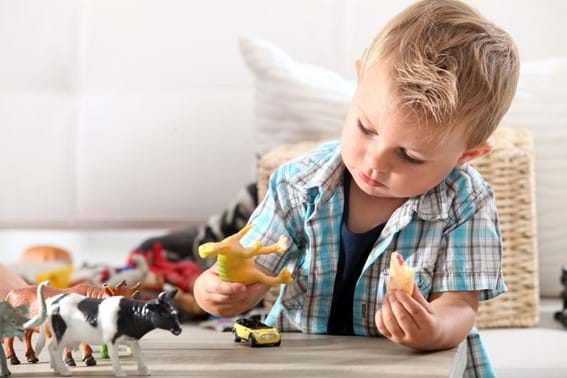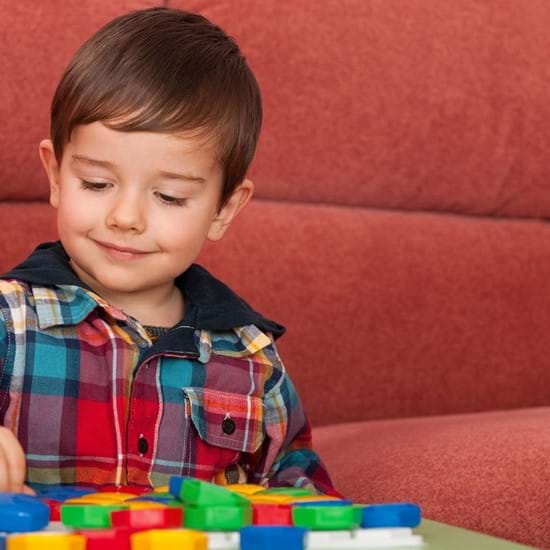
The Importance of Free Play

Written by: Nanny Secours
According to Janet Moyles (Professor Emerita, Anglia Ruskin University, UK), creative free play “is unstructured, self-guided and encourages the development of a child’s thinking skills, social skills and strengthening of fine motor skills. It includes any form of play that does not require instruction or parental guidance.”
According to the United Nations, free play is a right; under article 31 of the Convention on the Rights of the Child, “Children have the right to relax and play.”
Free play consists in letting the child control the play. He or she decides everything... to a certain extent. Parents become accessories to the game play, thus stimulating the children’s imagination and letting them develop a form of independence. Through repetition, kids will also learn to master what they’ve previously learned.
Playing alone
As a parent, it’s not always easy to leave your child alone to play, even less so outdoors. Nowadays, parents are increasingly busy with their daily tasks, i.e. work, chores, appointments, and so on. A child’s everyday schedule is often well-structured: daycare, followed by soccer, piano lessons or even gymnastics. The weekends aren’t any better with errands, housecleaning, family visits, etc.
We tend to constantly try to find something to do for our little ones to prevent them from getting bored, but also to make sure we have enough time to do everything that must be done. Because if they are bored… they’ll become restless! But that’s only according to popular belief. Of course, I don’t mean to pass judgement on parents who try their best to help with their children’s development. I get it; to get through our to-do list we, feel we need to keep the kids busy and entertained.
“But on the contrary, it’s good to let kids play by themselves; it develops their independence and stimulates their creativity and imagination”, says Silvia Galipeau, journalist (La Presse).
A child’s full time job is to play. Through free play, children learn how to live in society; they learn their limits (and those of their parents) and develop various parts of their brain activity. Kids learn a lot during play time, especially when it’s self-initiated and they are allowed to lead.
Let them be bored
Being bored isn’t a bad thing; in fact, it’s necessary to the development of your child’s creativity. A bored child is a child who’s “relaxing” before finding something else to do. Of course, as parents we are constantly tempted to help our kids find a new activity. Well, it’s time to take a step back and tell your child that it’s good to be bored.
According to Mathieu Point (Professor, Faculty of Educational Sciences, UQTR): “It’s okay to let your children get bored. When they are, they are forced to develop their creativity and use what they can to have fun and escape their boredom. You don’t always have to keep them occupied; they can busy themselves.”
“In the end, there’s one golden rule: give your children time. This time should be free, unstructured and obviously without any screens. Allow your kids to get bored so they end up busying themselves and playing, whether alone, with friends or even with you. That’s the key," says Silvia Galipeau.
On that note, make way for unstructured play!

Julie Lachapelle, B. Ed.
Family Coach, Instructor and Owner of Les Poppins
Member of the Nanny Secours Network
References
- http://blogue.quebecenforme.org/2015/12/pourquoi-le-jeu-libre-et-actif-favorise-t-il-le-developpement-moteur-de-lenfant-3-raisons/
- http://naitreetgrandir.com/fr/etape/1_3_ans/jeux/fiche.aspx?doc=bg-naitre-grandir-jeu-libre
To learn more:
- Scholastic, Make Way for play http://www.scholastic.com/parents/resources/article/creativity-play/make-way-play
- The Mother Company’s article http://www.themotherco.com/2014/07/is-boredom-good-for-children/
- Convention on the Rights of the Child http://www.ohchr.org/en/professionalinterest/pages/crc.aspx


